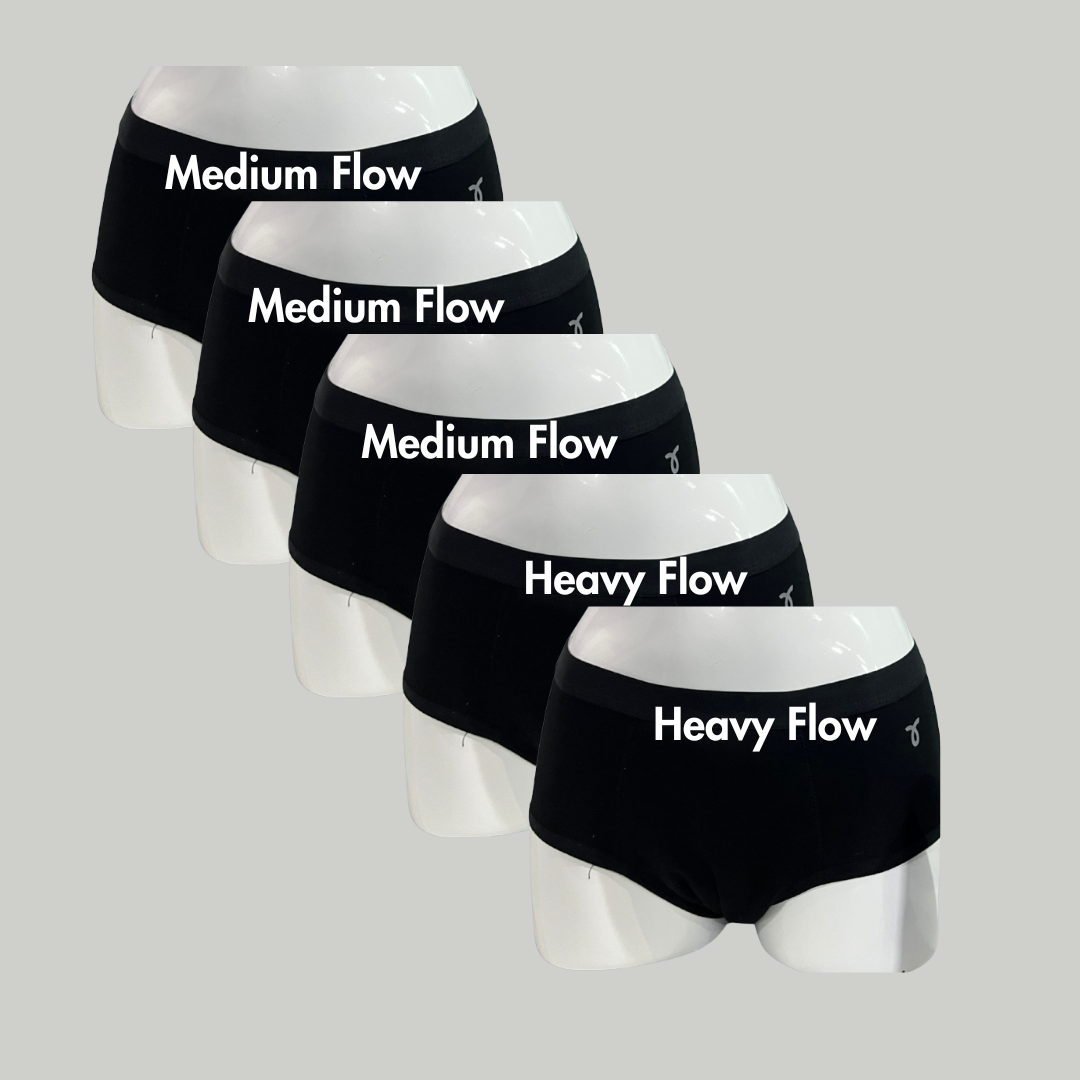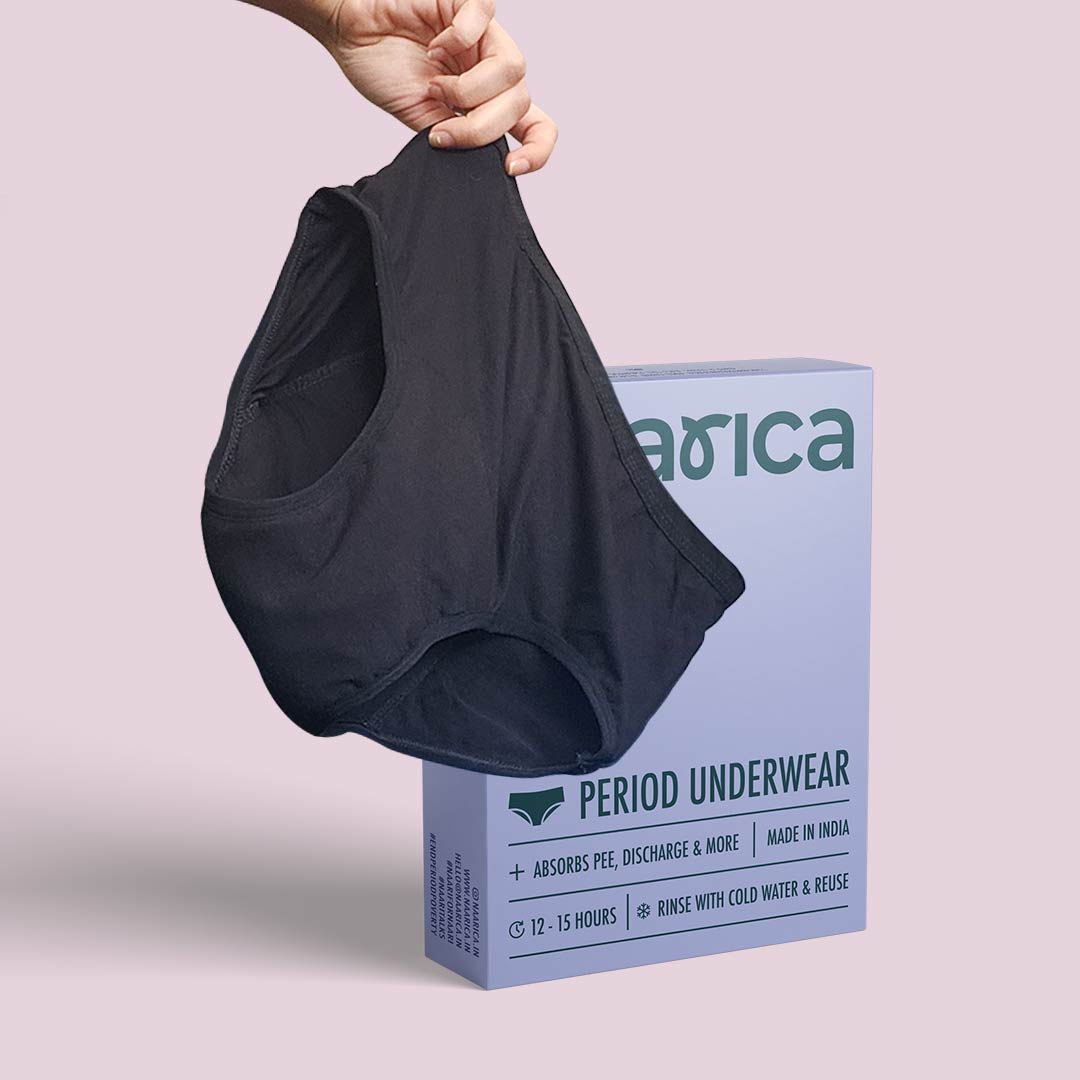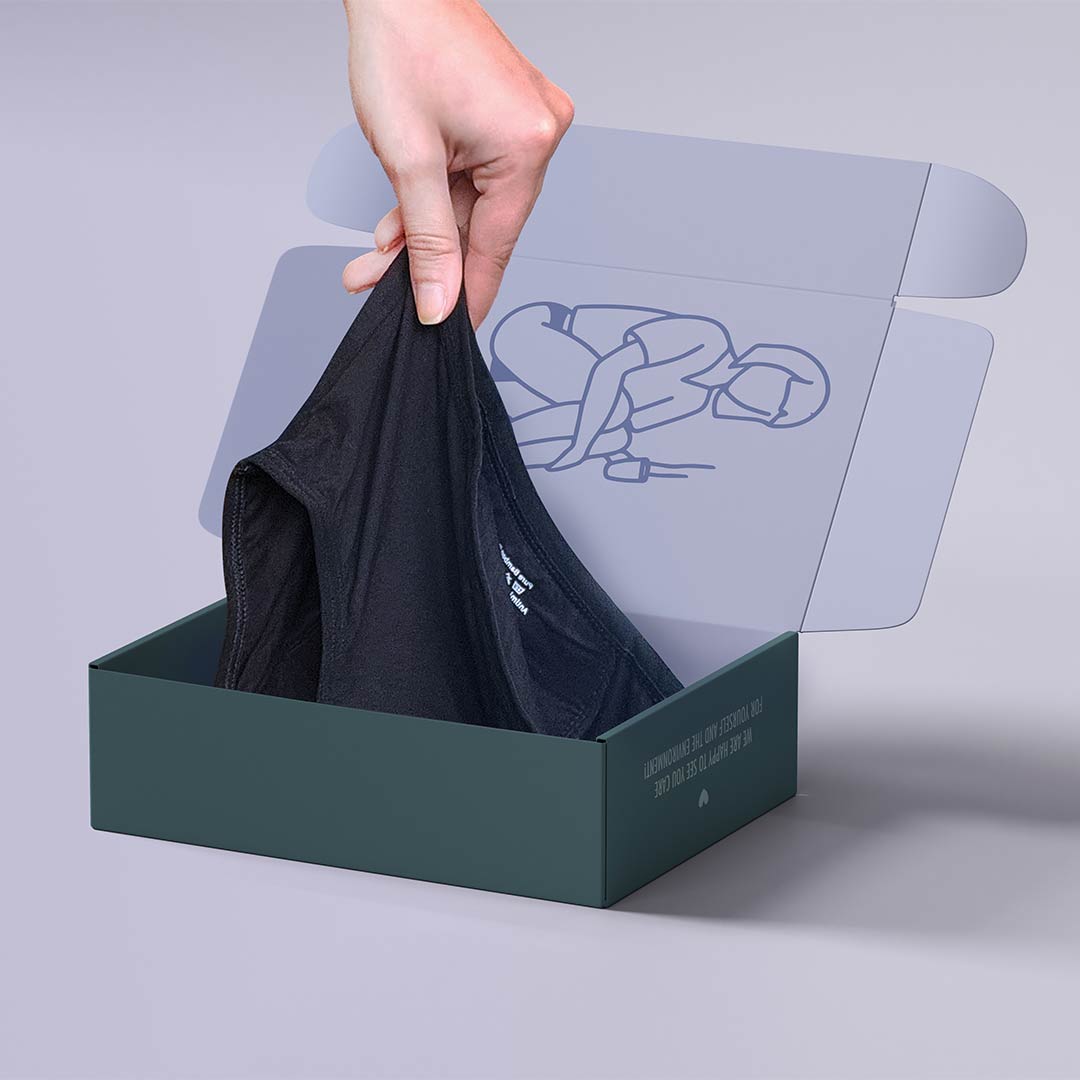When you're in a bad mood, the people around you usually ask you the fateful question: "Are you on your period or what?". In fact, during menstruation, women's behavior generally changes. They feel tired more quickly, become more irritable and are particularly emotional. This is completely normal.
During your period, women experience a significant drop in serotonin (the neurotransmitter responsible for good mood), iron and blood sugar levels. But that's not all. Menstruation also brings pain and discomfort. In fact, menstruation and digestive problems often go hand in hand. So you're very apprehensive about this monthly appointment. What you don't know is that it's entirely possible to overcome this situation, or at least minimize the discomfort. How? With sanitary panties, but also with the food on your plate. As you can see, it's all about eating better during your period.
Food is your main ally
During your period, your body undergoes a major hormonal upheaval. To cope with this effectively and in the best possible conditions, it's essential to maintain a healthy diet and get rid of bad habits. But what's the connection, you might ask? By ensuring a healthy diet, you're helping your body to stay healthy. It also gives you the best chance of improving your mood, getting fitter and feeling better. The foods on your plate will also help to reduce the risk of dysmenorrhea, a condition largely associated with poor nutrition.
Secondary amenorrhea: when a woman who has already menstruated suffers a delay of more than 6 months, or of a duration corresponding to that of three cycles when she last menstruated.
Foods to focus on during your period
Before, during and a few days after your period, here are the foods you should include in your everyday menu to be healthier and better manage the pain and discomfort of this period that you can't escape (unless you're pregnant):
Oats
The carbohydrates found in oats are known for their tranquilizing effect on the brain. With its relatively low glycemic index, oats are absorbed quickly and efficiently by the body, contributing to a healthy diet. As a result, you won't be tempted to snack throughout the day. Oats can be eaten in a variety of ways, depending on your tastes and desires: cooked as a starch, or as flakes. However, it's important to eat a reasonable quantity. The ideal? 3 to 5 tablespoons at breakfast.
Eggs
Eggs contain the high-quality proteins you need to get through the day. Several components in eggs are also known to effectively reduce feelings of fatigue: vitamin B6 and tryptophan. And if you're worried about your cholesterol levels, you've got nothing to worry about. Just limit yourself to 3 eggs a week. In this way, these products continue to improve your eating habits.
Bananas
Bananas are also an excellent choice for a healthy diet. Rich in vitamin B6, bananas boost the production of all the neurotransmitters responsible for a good mood. High in potassium, bananas are also known to reduce muscle contractions. By extension, eating a banana will help reduce the pain caused by menstruation. Finally, the high vitamin C content of bananas ensures better iron absorption. And when you're on your period, it's very important to find a way to compensate for iron losses.
Green vegetables
Green vegetables (whether spinach or cabbage) are very good for your health. And their action is all the more important when you're in your menstrual cycle. They contain a wealth of iron and vitamin B, and can help limit digestive problems.
Nuts
When you're on a good diet, all you want to do is gorge yourself on sweets and cakes. Which is perfectly understandable, but not at all reasonable. Whether you're in your menstrual period or not, these foods aren't the most beneficial for your body. For your snacking cravings, think nuts. These foods contain omega-3s, good fats that are very important for getting back into shape and, above all, for preventing cravings. Keep a bag handy and eat them whenever you feel like it.
Wholegrain cereals
Like fruit and vegetables, wholegrain cereals are foods that health professionals recommend on a daily basis. They are particularly rich in fiber, helping to regulate your digestive system. They also contain vitamins and minerals that help you stay in shape all day long.
Red meat
Meat contains a significant amount of iron. This has the advantage of compensating for the iron losses your body experiences during the menstrual cycle. What's the ideal amount? A portion of 100 to 150 g of red meat, every day.
Foods to avoid during your period
During your menstrual cycle, you should also be careful to cut down on certain foods. This will help reduce some of the symptoms that usually accompany menstruation:
Salt and sugar
As far as you can, reduce your intake of salt and sugar. Salt and sugar are responsible for a number of menstrual ailments: water retention, bloating and so on. The good news is that chocolate and painful periods go hand in hand. On the contrary, it can be very effective against depression and pain!
Coffee and tea
During your period, it's a good idea to reduce your intake of caffeine, theine and soft drinks. These drinks, while delicious, are responsible for increased stress. During your period, you're usually on edge, and stress isn't going to help. In fact, it can make your mood worse. Choose herbal infusions for their anti-inflammatory and analgesic properties. For example, ginger and painful periods is an infallible natural grandmother's remedy!
Alcohol and tobacco
As far as possible, you should avoid drinking alcohol during your period. It increases the risk of water retention and greatly affects your mood. The same applies to tobacco.
Dairy products
It sounds ironic, but dairy products promote uterine contraction, which usually leads to cramps. So limit butter, milk and cheese during your period. Now you know how important diet is during menstruation, and how to adapt your eating habits to better cope with this period.







